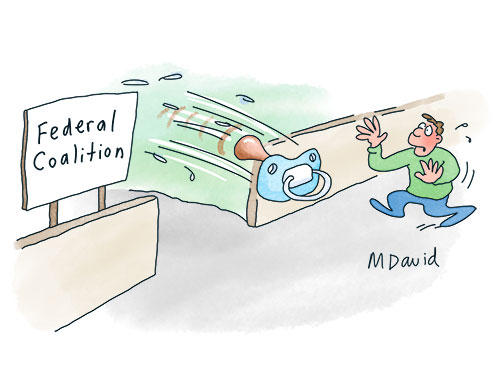If you have ever wondered whether your misspent youth may have killed off a few too many brain cells, know a close relative with dementia or are simply forgetting a few too many details, the idea of impending brain atrophy can be terrifying.
As our brains age, is there anything practical we can do to maintain function? And does it all involve giving up many of life’s pleasures, like alcohol or sugar?
In her accessible new book, How to Keep Your Brain Young, Professor Kerryn Phelps AM tackles one of our greatest fears: losing our mental capacity as we get older.
For some of us, terrified that dementia may await, Professor Phelps hits the nail on the head (pardon the pun):
‘If you are a woman in your 40s or 50s, you may at times have found yourself standing in a room wondering why on Earth you are there, or forgotten the names of people you know well, or started a sentence and forgotten what it was that you needed to say.’
Well, this reader may not know much about that (ahem!) but the best news is that while physical ageing is inevitable, ageing mentally is not.
What an exciting prospect it is that we can consciously harness the potential for the brain to adapt by actively changing our thought patterns and behaviours.
For those of us who suspect the Dr Google study method may also be having a detrimental effect on our brain health, eclipsing all reason and threatening to overwhelm our ability to decipher fact from fiction, this book is a very handy shortcut to the latest scientific research on a range of brain health factors — no keyboards required.
There is good and bad news about lifestyle habits such as alcohol and drug consumption, physical exercise, sleep patterns and dietary routines. But mostly, this well-informed guide offers practical advice on a range of factors affecting our mental processes and covers everything from “brain fog” and forgetfulness, to depression and anxiety.
How to Keep Your Brain Young provides up to the minute information, drawing on the latest research about what you can and can’t do to keep your brain young. It embraces a range of traditional practices as well as holistic steps, such as the benefits of mindfulness, and how these can improve and prolong the health of our largest and most important organ.
The science of neuroplasticity has revealed that the brain’s ability to learn and regenerate can be assisted with a few simple lifestyle changes and that there is hope for improvement at any age:
Structural and functional changes in the brain can be induced by environmental factors, emotions, experiences, learning and behaviours.
What an exciting prospect it is that we can consciously harness the potential for the brain to adapt by actively changing our thought patterns and behaviours.
The book offers simple recommendations by which we can, among other things, 'preserve memory, reduce dementia risk, harness neuroplasticity and restore function'.
For this grateful reader, whose frivolous youth may or may not have killed off vast quantities of brain cells, How to Keep Your Brain Young is a thinking person’s manual of simple, everyday practices that can help keep the brain younger for longer. Who doesn’t want that?
‘How to Keep Your Brain Young', by Professor Kerryn Phelps AM, is available from Booktopia at $29.50 (paperback) RRP.
You can follow managing editor Michelle Pini on Twitter @vmp9. Follow Independent Australia on Twitter @independentaus and on Facebook HERE.
 This work is licensed under a Creative Commons Attribution-NonCommercial-NoDerivs 3.0 Australia License
This work is licensed under a Creative Commons Attribution-NonCommercial-NoDerivs 3.0 Australia License
Support independent journalism Subscribe to IA.












